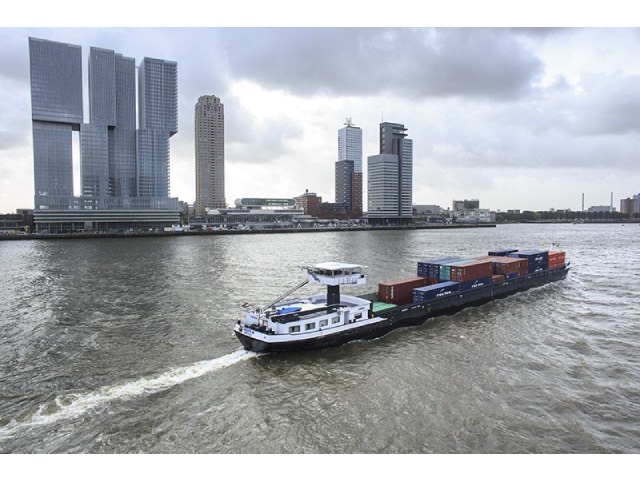Today Allard Castelein, CEO of the Port of Rotterdam, participated in a European virtual ministerial conference on inland shipping. This event was organized by the German Ministry of Transport under the Council Presidency of the European Union in collaboration with EBU, the European association for inland navigation and the central commission for navigation on the Rhine.
The German Federal Minister of Transport and Digital Infrastructure Andreas Scheuer invited the sector to discuss the impact of the European Commission’s Green Deal on the competitiveness and sustainability of inland shipping. The meeting was attended by a select group of EU policy officials, including European Commissioner Valean, transport ministers from the various member states, MEP Vera Tax and industry representatives.
During the panel discussion, Allard Castelein emphasized that working towards an inland shipping sector that is more innovative, reliable and sustainable can only be achieved when all inland shipping chain parties are involved and work together. The role and mission of the Port of Rotterdam is twofold in this regard. In the first place, the port takes its responsibility in working towards an integrated logistics system for the exchange of goods between sea and hinterland. Secondly, the Port Authority is actively committed to clean and climate-neutral inland shipping. The port not only stimulates cleaner ships through incentives such as the exemption from port dues and specific port regulations, but also invests and participates in the so-called ZES initiative and Rh2ine project, which together aim at 60 operational ships with an electric drive train with 15 docking stations on 20 routes in 2025.
Allard Castelein then indicated that the sustainability goals can only be achieved if investments are made in open access charging infrastructure that is accompanied by large-scale availability of incentive funds for fleet renewal. Ideally, here the synergy between energy and transport networks will be sought by constructing a hydrogen pipeline network along the current Rhine-Alpine TEN-T corridor. Finally he indicated that “…dealing with uncertainties in operations is difficult. Ideally, you therefore want to bring together all stakeholders across all phases of the entire corridor in order to arrive at a joint planning for the longer term”. That also applies to infrastructure. Infrastructure projects, for example in the field of navigability, cannot be left to the local authorities alone. Here too it is important to let the corridor perspective prevail.
The entire contribution of the Port of Rotterdam can be read in the submitted discussion paper here.









































